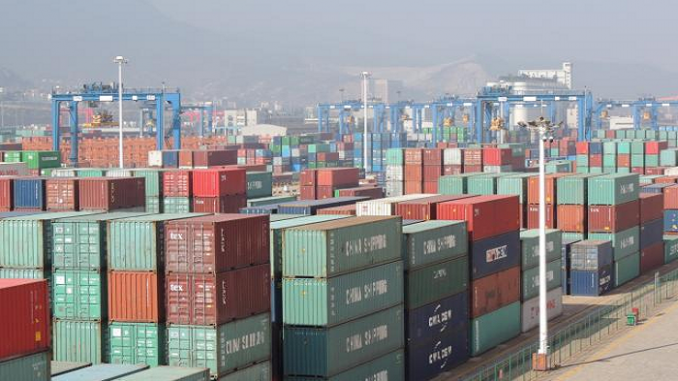
By Isaac Anumihe
Indications have emerged that the ban on 41 items and the high import duties on cargoes are responsible for the low business activities in the ports.
A report by the Nigerian Ports Authority (NPA) recently shows that about 341 vessels entered Nigeria in September 2016, the lowest in nine months and a fall from 400 recorded in August 2016 and cargo throughput also dropped from 6.3 million metric tonnes in January this year to 5.6 million in September, also the lowest in the year.
The statistics further showed that a total of 3,347 ocean going vessels have called Nigeria so far this year, estimated at about 100,152,274 metric tonnes. The breakdown showed that the Lagos Port Complex, Apapa, received 318 vessels in the third quarter as against 301 in the second quarter.
Tin Can Island Ports received 406 vessels in third quarter, as against 368 in the last quarter; Rivers Ports, 80 ships as against 84 in the previous quarter; Onne received 152 vessels as against 163; Calabar Port, 51 as against 52; while Delta Port received 132 as against 109.
Experts have blamed the drop in cargo volume and huge loss of revenue by port and terminal operators on the anti-trade policies of the Federal Government. These policies have also made the country unattractive to investors.
The President, National Council of Managing Directors of Licensed Customs Agents (NCMDLCA), Mr. Lucky Amiwero, said the current hike in import duty on vehicles in 2014 and 2015 from 10 per cent to 35 per cent with an additional surcharge of 35 per cent, bringing the total tariff to 70 per cent, has negatively impacted operations at the port and led to massive revenue and job loss.
He said the arbitrary import duty hike led to the diversion of vessels carrying vehicles to the ports of neighbouring West African countries, thereby boosting operations in those ports – especially the Port of Cotonou – at the expense of Nigerian ports.
The development has also negatively affected the operations of dockworkers, licensed Customs agents, freight forwarders, truckers and others.
According to him, the reduction of activities by 70 per cent in the operation of terminal operators who pay the Federal Government based on cargo, through earnings and shipping companies, has drastically affected their activities.
In a statement, the spokesman of the terminal operators, Mr Bolaji Akinola said that at present, Nigerian ports have lost about 80 per cent of their vehicle cargo as a result of this hike, which has done more harm than good to the economy. He said that the hike has promoted smuggling and led to huge loss of government and private sector revenue to the advantage of the ports of neighbouring countries.
“ It is estimated that no fewer than 5,000 jobs and about N30billion is lost annually to the policy.
Investigations also show that break bulk terminals at the ports are struggling to pay their bills and meet their financial obligations to the Nigerian Ports Authority (NPA) due to the plethora of banned products and the hike on import duties on others.
For instance, the hike in import duty on rice, the restriction imposed on the importation of fish and on cement are all taking a huge toll on the income of the break bulk terminals as their revenue has dipped by over 60 per cent. The imposition of 100 per cent import duty on rice and an additional 10 per cent levy have had the most debilitating effect on the break bulk terminals as handling of rice cargo accounts for more than half of their revenue” he said.











